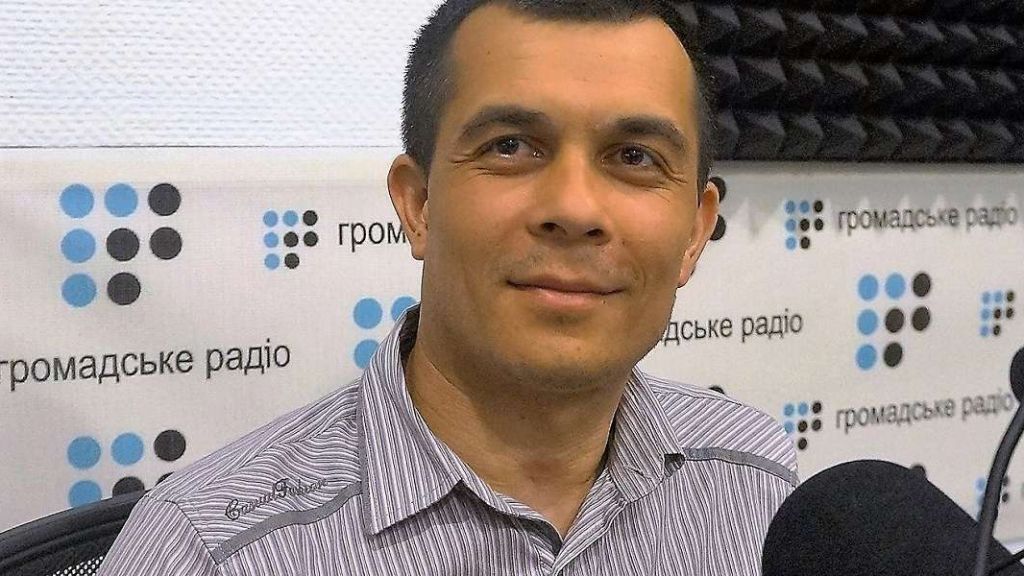On 26 January, Emil Kurbedinov was arrested while driving to represent his client Seyran Saliev, while his house was searched by the security services – a practice that Seyran Saliev spoke out against and called illegal in May 2016, and which is part of wider human rights violations against Crimean Tatars.
Ukrainian human rights organisations have expressed their conviction that Emil Kurbedinov’s arrest is a response to his activities as a human rights lawyer. International organisations of the Civic Solidarity Platform have pointed to “a systemic policy of Russian authorities to suppress activities of independent human rights defenders in the peninsula and to execute systematic pressure on lawyers fulfilling their professional obligations.”
Florian Irminger, Head of Advocacy at HRHF, urged action from the international community: “We call on the international community to do everything it can to compel the authorities of the Russian Federation to release Emil and Seyran. Their detention and trial constitute a violation of several of their civil and political rights, such as the right to liberty and security, the right to a fair trial, and the right to be a human rights defender. We believe these cases should be given highest priority, as the arbitrary detention of these lawyers and activists is emblematic of the climate of repression against civil society in Crimea.”
The UN expert devoted to protecting human rights lawyers, states in her October 2016 report to UN General Assembly: “When lawyers provide professional services aimed at promoting the human rights and fundamental freedoms of their clients, they qualify as human rights defenders… [States should] acknowledge, respect and protect the status of lawyers who promote and defend human rights defenders.”
Emil Kurbedinov is among the few independent lawyers in Crimea who defend political prisoners. He is the lawyer of Ilmi Umerov, deputy head of the Mejlis (now-banned parliament of the Crimean Tatars), and several Crimean Tatars charged in the so-called ‘Hizb ut-Tahrir’ case in which 14 Crimean Muslims were arrested for terrorist activities, despite no evidence being found of their involvement in such activities.
The Russian-controlled court in Simferopol sentenced Emil Kurbedinov to 10-days of administrative detention on 26 January. He is accused of publishing photos of a protest that took place in 2013, in which there is a visible symbol of “Hizb ut-Tahrir.” Russia’s Supreme Court banned “Hizb ut-Tahir” in 2003 and included it in its list of terrorist organisations.
Emil Kurbedinov’s arrest comes just a day after the arrest of Nikolay Polozov, lawyer also for Ilmi Umerov and for Akhtem Chiygoz, deputy chairman of the banned Mejlis. He was approached by several men on 25 January and put in a minivan, and then interrogated by security services as a witness in the Akhtem Chyigoz case, violating his attorney-client privilege. Nikolay refused to testify and was released after two and a half hours. On 23 January, Nikolay attended a PACE session of the Council of Europe and gave a speech on human rights in Crimea.
“The detention Nikolai Polozov is just as worrying. The timing of his arrest suggests a clear reprisal against him due to his cooperation with the Council of Europe. The President of the Parliamentary Assembly should now be the single strongest voice calling for his immediate release and for Russia to present a plan to prevent acts of intimidation and reprisal against those cooperating with the Council of Europe,” commented Florian Irminger.
The UN expert on judges and lawyers further states in her report: “All State institutions, including the judiciary, should respect and protect the right of lawyers to freedom of opinion and expression… should not identify lawyers with their clients or their clients’ causes… [and take] measures aimed at preventing the occurrence of such identification.”
Florian Irminger continued: “Once again, a lawyer is targeted for his human rights work. Emil Kurbedinov and Seyran Saliev are two of many activists and human rights defenders arrested in Crimea since the annexation by the Russian Federation. It is Russia’s will to silence human rights monitoring in Crimea and the arrests are a reflection of the no-law zone that Crimea has become. They should be released immediately. We call on the Russian and the Ukrainian authorities to guarantee the safety of human rights defenders, journalists and lawyers in the territory of Crimea.”
As stated by Ukrainian human rights defenders: “By persecuting Nikolai Polozov and Emil Kurbedinov – [two of the] very few human rights lawyers operating in Crimea – the occupation authorities not only put pressure on the lawyers and obstruct their conduct, but also deprive the Crimeans of the little chance [they have] to defend their rights.”
Documents:
- Report: Human Rights Lawyers at Risk
The report Human Rights Lawyers at Risk: Making the Case for Protection of Legal Professionals in Azerbaijan, Belarus, Moldova, Russia, and Ukraine was launched in Warsaw 23 September 2015. - The Peninsula of Fear
Chronicle of occupation and violation of human rights in Crimea
Human rights in Crimea
In November 2016, three Ukrainian human rights organisations and the Human Rights House Foundation called on the UN General Assembly to address the human rights situation in Crimea.
In September 2016, Human Rights House Foundation delivered a statement to the United Nations on the deteriorating human rights situation in “Russianised” Crimea.
In May 2016, the EU Parliament adopted a resolution on Crimean Tatars.
Protections for Human Rights Lawyers
In October 2016, the report of the UN Special Rapporteur on Judges and Lawyers was presented to the UN General Assembly. It gives clear recommendations on the actions States and bar associations should take to ensure the independence of lawyers.
HRHF coordinates the International Law in Advocacy (ILIA) programme, which provides education in international human rights law, strategies on how to implement human rights standards at national level, and entry into an active, international alumni of human rights lawyers.





